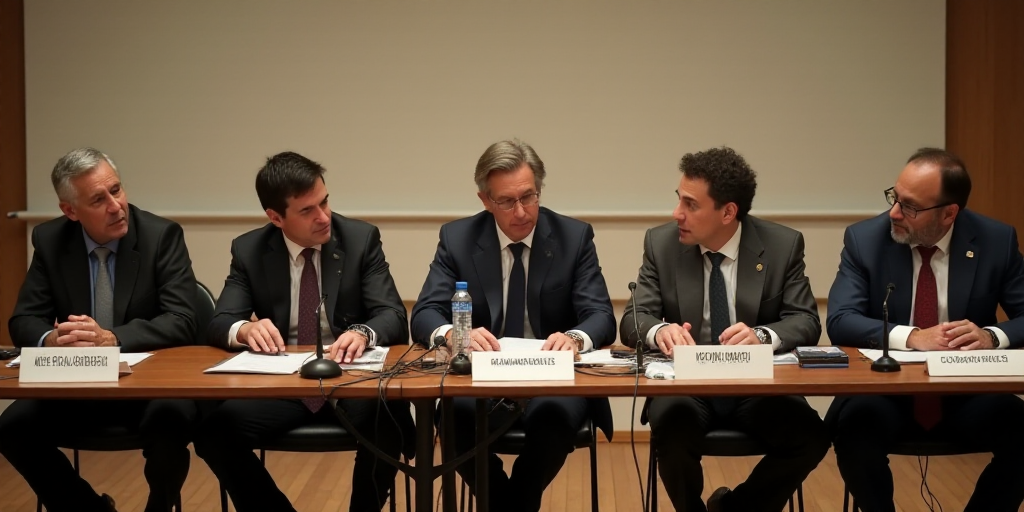Introduction to Clara Brugada and Her Role
Clara Brugada Molina, the Head of Government for Mexico City, recently presented a comprehensive plan to maintain and improve the city’s primary roadways. As one of the most influential figures in Mexico City’s administration, Brugada Molina has been instrumental in addressing the city’s infrastructure challenges.
The Integral Plan for Asphalt Maintenance
The plan, titled the Integral Plan for Asphalt Maintenance, aims to address 1,250 kilometers of primary roadways in Mexico City. It comprises three main components:
- Programmed nighttime patching
- Patching based on citizen reports and emergencies
- Strategic pavement program for primary roads
This bianual initiative will invest 2,250 million pesos to ensure the longevity and safety of Mexico City’s primary roads.
Programmed Nighttime Patching
The first action involves patching 1,000 kilometers of primary roadways from today until December. This will be accomplished by intervening 10 kilometers of avenues each night, with the help of 50 work crews.
Patching Based on Citizen Reports and Emergencies
The second component focuses on addressing citizen reports and emergencies through patching. This task will be handled by another 50 work crews, ensuring that reports are attended to within 48 hours via two channels: *0311- Locatel* and the upcoming Bachetel chatbot.
Strategic Pavement Program for Primary Roads
The third component is the implementation of a strategic pavement program for Mexico City’s primary roads. This initiative will commence after the rainy season, from October 2025 to May 2026. It involves repairing 250 kilometers of linear roadways, equivalent to approximately 4.113 million square meters.
Impact and Collaboration
This comprehensive plan is part of the ongoing efforts to maintain Mexico City’s primary roadways, following the Mega Bachetón program that repaired over 200,000 potholes across the city. Raúl Basulto Luviano, the Secretary of Public Works and Services (SOBSE), emphasized that this bianual program, from October 2025 to April 2026, will invest nearly 2,250 million pesos to recarpet an average of 4 million square meters.
Basulto Luviano also mentioned that a detailed schedule will inform residents about the recarpeting of primary roadways. The process involves intervening 10 kilometers each night, starting at 10 PM, with a planned asphalt volume for repaving between 4,000 to 6,000 metric tons.
Addressing Secondary Road Issues
José Mario Esparza Hernández, the Secretary of Integral Water Management (Segiagua), explained that sinkholes are caused by saturated drainage collectors and the pressure from water leading to cracks in infrastructure, resulting in subterranean cavities beneath the asphalt.
Current Sinkhole Statistics
So far in 2025, there have been 37 sinkholes on primary roads and 116 on secondary roads. Of the primary road sinkholes, 23 have been addressed by Segiagua, seven are in process, and six are being handled by the Operations Department. For secondary roads, responsible for the alcaldías, 108 sinkholes have been resolved, and six remain in process.
Comparison with Previous Years
Compared to 2024, there were 39 primary road sinkholes throughout the year and 91 secondary road sinkholes. In 2025, there have already been 37 primary and 116 secondary sinkholes reported.
Specific Locations and Solutions
In Las Torres (José Clemente Orozco), Iztapalapa, nine sinkholes have appeared in a very limited area. To address this, a project is underway to construct a new 2-kilometer drainage collector, currently 80% complete in topographic studies. This project is expected to be finished in two months, with five months of construction required and an approximate investment of 50 million pesos.
Lastly, two significant sinkholes on the Ignacio Zaragoza calzada are being tackled, with one expected to be resolved in under 15 days and the other in under a month. Specialized safety measures will be implemented to protect workers during these operations.
Key Questions and Answers
- What is the Integral Plan for Asphalt Maintenance? It’s a bianual initiative by Clara Brugada Molina to maintain and improve 1,250 kilometers of Mexico City’s primary roadways with a 2,250 million pesos investment.
- What are the three main components of the plan? Programmed nighttime patching, patching based on citizen reports and emergencies, and a strategic pavement program for primary roads.
- How will citizens be informed about the road maintenance work? A detailed schedule will inform residents about the recarpeting of primary roadways, with 10 kilometers intervened each night starting at 10 PM.
- What causes sinkholes in Mexico City’s roads? Sinkholes are primarily caused by saturated drainage collectors and water pressure leading to cracks in infrastructure, resulting in subterranean cavities beneath the asphalt.
- How many sinkholes have been reported so far in 2025? There have been 37 sinkholes on primary roads and 116 on secondary roads.






